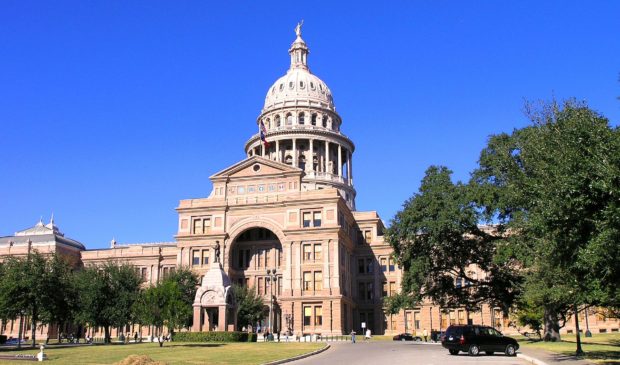County official: Political gridlock and local preemption loom at the Capitol
Wednesday, November 23, 2016 by
Caleb Pritchard The Texas Legislature is returning to Austin in just 47 days, and Travis County is bracing for impact.
On Tuesday, the Commissioners Court’s field team at the Capitol gave a grim forecast of political headwinds to come once the 85th Legislature convenes its regular session on Jan. 10.
“This session will definitely be defined by a tale of two agendas,” Gregg Knaupe, the county’s legislative consultant, told the court. He explained that Lt. Gov. Dan Patrick’s priorities in the Senate are “markedly different” from those of his fellow Republican, House Speaker Joe Straus.
Patrick has vowed to reform property taxes, liberalize school vouchers, strengthen abortion restrictions and regulate which public bathrooms certain Texans can use, among a raft of other legislative aims. Straus’ relatively more ideologically moderate goals include fixing the broken foster care system, revamping school finance and overhauling special education services.
Amid all of that Sturm und Drang, the Legislature will also seek a consensus on its paramount mandate. As Intergovernmental Relations Coordinator Deece Eckstein recounted, “The famous quote of former Lt. Gov. Bill Hobby is that the job of the Legislature is to pass the budget. Everything else is poetry.”
Eckstein notified the court that the process this time around won’t be as easy as it was in 2015. State coffers back then were pumped full thanks to the go-go oil and gas industry, a sector that has since crashed due largely to overproduction. The slower economy has also softened sales tax collections. In response, Patrick, Straus and Gov. Greg Abbott asked state agencies this summer to trim their budget requests by 4 percent.
“So we expect the budget forecast will be tighter and that it may have implications for programs that the state supports in counties such as criminal justice grants and so forth,” Eckstein told the court.
Lawmakers will also have to fill a shortfall in Medicaid funding that is approaching $2 billion. At the same time, according to Knaupe, they may also consider using money from the so-called rainy day fund to shore up the state’s mental hospital system.
The combination of tough spending choices and potential clashes over pet policies has stirred up speculation of gridlock between the House and Senate.
“And so what we are being told, legislative staff and people like me who are legislative consultants,” Knaupe said, “is don’t make any summer plans because the budget may have to be a summer issue along with some other legislative priorities.”
“That just sounds so elevating,” a tannic County Judge Sarah Eckhardt replied.
Eckstein piled on the foreboding news by heralding the specter of “preemption,” a trend that he defined as “the idea that in cases where a local government is making decisions that a different level of government feels are not in the best interests of the people, that other level of government, specifically state government, ought to step in and ought to be able to limit the authority of local government.”
Two years ago, lawmakers preempted Denton’s local ban on fracking within its city limits by passing a law forbidding such bans. For the upcoming session, bills have already been filed that would do away with local plastic bag bans, regulations on transportation network companies and nondiscrimination rules. Patrick has also promised to tighten revenue caps, a move that could severely restrict the county’s future budgets.
After hearing Eckstein and Knaupe’s report, the court considered amendments to its own list of legislative priorities. In addition to the nine existing priorities, the court voted 4-0, with Commissioner Ron Davis absent, to lobby the Legislature to provide reimbursement for STAR Flight’s work outside of the county; reform two state programs that help low-income residents retrofit smog-belching vehicles; and improve security for judges and their staff members.
Last month, the court approved its initial slate of nine priorities, which included utility relocation reform and clarifying the policy for private drones over county jails. At the end of Tuesday’s discussion, Commissioner Brigid Shea signaled that the legislative subcommittee she sits on with Commissioner Gerald Daugherty could soon recommend that county lobbyists also pursue legislation related to wildfire and flood mitigation and “also the impact of autonomous vehicles on planning for roadway infrastructure.”
Photo by Daniel Mayer (Own work) [GFDL, CC-BY-SA-3.0 or CC BY-SA 2.5-2.0-1.0], via Wikimedia Commons.
The Austin Monitor’s work is made possible by donations from the community. Though our reporting covers donors from time to time, we are careful to keep business and editorial efforts separate while maintaining transparency. A complete list of donors is available here, and our code of ethics is explained here.
You're a community leader
And we’re honored you look to us for serious, in-depth news. You know a strong community needs local and dedicated watchdog reporting. We’re here for you and that won’t change. Now will you take the powerful next step and support our nonprofit news organization?



